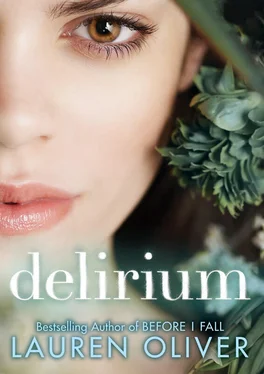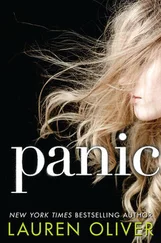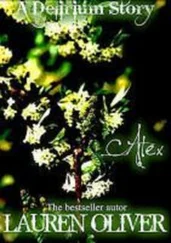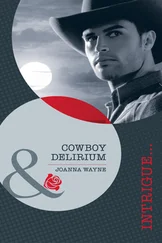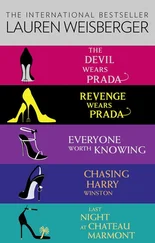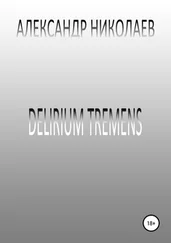Fortunately, one of the evaluators, a woman, speaks first. “Do you have your forms?” Her voice sounds friendly, but it doesn’t help the fist that has closed deep in my stomach, squeezing my intestines.
Oh, God, I think. I’m going to pee. I’m going to pee right here. I try to imagine what Hana will say after this is over, when we’re walking through the afternoon sunshine, with the smell of salt and sun-warmed pavement heavy on the air around us. “God,” she’ll say. “That was a waste of time. All of them just sitting there staring like four frogs on a log.”
“Um—yes.” I step closer, feeling like the air has turned solid, resisting me. When I’m a few feet away from the table, I reach out and pass the evaluators my clipboard. There are three men and one woman, but I find I can’t focus on their features for too long. I scan them quickly and then shuffle backward again, getting only an impression of some noses, a few dark eyes, the winking of a pair of glasses.
My clipboard bobs its way down the line of evaluators. I squeeze my arms to my sides and try to appear relaxed.
Behind me, an observation deck runs along the back wall, elevated about twenty feet off the ground. It is accessed through a small red door high up beyond the tiered rows of white seats that are obviously meant to hold students, doctors, interns, and junior scientists. Not only do the lab scientists perform the procedure, they do checkups afterward and often treat difficult cases of other diseases.
It occurs to me that the scientists must perform the cure here, in this very room. That must be what the surgical table is for. The fist of anxiety starts closing in my stomach again. For some reason, though I’ve often thought about what it would be like to be cured, I’ve never really thought about the procedure itself: the hard metal table, the lights winking above me, the tubes and the wires and the pain.
“Lena Haloway?”
“Yes. That’s me.”
“Okay. Why don’t you start by telling us a little about yourself?” The evaluator with the glasses leans forward, spreading his hands, and smiles. He has big, square white teeth that remind me of bathroom tiles. The reflection in his glasses makes it impossible to see his eyes, and I wish he would take them off. “Talk to us about the things you like to do. Your interests, hobbies, favorite subjects.”
I launch into the speech I’ve prepared, about photography and running and spending time with my friends, but I’m not focusing. I see the evaluators nodding in front of me, and smiles beginning to loosen their faces as they take notes, so I know I’m doing fine, but I can’t even hear the words that are coming out of my mouth. I’m fixated on the metal surgical table and keep sneaking looks at it from the corner of my eye, watching it blink and shimmer in the light like the edge of a blade.
And suddenly I’m thinking of my mother. My mother had remained uncured despite three separate procedures, and the disease had claimed her, nipped at her insides and turned her eyes hollow and her cheeks pale, had taken control of her feet and led her, inch by inch, to the edge of a sandy cliff and into the bright, thin air of the plunge beyond.
Or so they tell me. I was six at the time. I remember only the hot pressure of her fingers on my face in the nighttime and her last whispered words to me. I love you. Remember. They cannot take it.
I close my eyes quickly, overwhelmed by the thought of my mother, writhing, and a dozen scientists in lab coats watching, scribbling impassively on notepads. Three separate times she was strapped to a metal table; three separate times a crowd of observers watched her from the deck, took note of her responses as the needles, and then the lasers, pierced her skin. Normally patients are anesthetized during the procedure and don’t feel a thing, but my aunt had once let slip that during my mother’s third procedure they had refused to sedate her, thinking that the anesthesia might be interfering with her brain’s response to the cure.
“Would you like some water?” Evaluator One, the woman, gestures to a bottle of water and a glass set up on the table. She has noticed my momentary flinch, but it’s okay. My personal statement is done, and I can tell by the way the evaluators are looking at me—pleased, proud, like I’m a little kid who has managed to fit all the right pegs in all the right holes—that I’ve done a good job.
I pour myself a glass of water and take a few sips, grateful for the pause. I can feel sweat pricking up under my arms, on my scalp, and at the base of my neck, and I pray to God they can’t see it. I try to keep my eyes locked on the evaluators, but there it is in my peripheral vision, grinning at me: that damn table.
“Okay now, Lena. We’re going to ask you some questions. We want you to answer honestly. Remember, we’re trying to get to know you as a person .”
As opposed to what? The question pops into my mind before I can stop it. As an animal?
I take a deep breath, force myself to nod and smile. “Great.”
“What are some of your favorite books?”
“ Love, War, and Interference , by Christopher Malley,” I answer automatically. “ Border , by Philippa Harolde.” It’s no use trying to keep the images away: They are rising now, a flood. That one word keeps scripting itself on my brain, as though it is being seared there. Pain . They wanted to make my mother submit to a fourth procedure. They were coming for her on the night she died, coming to bring her to the labs. But instead she had fled into the dark, winged her way into the air. Instead she had woken me with those words— I love you. Remember. They cannot take it. —which the wind seemed to carry back to me long after she had vanished, repeated on the dry trees, on the leaves coughing and whispering in the cold gray dawn. “And Romeo and Juliet , by William Shakespeare.”
The evaluators nod, make notes. Romeo and Juliet is required reading in every freshman-year health class.
“And why is that?” Evaluator Three asks.
It’s frightening : That’s what I’m supposed to say. It’s a cautionary tale, a warning about the dangers of the old world, before the cure. But my throat seems to have grown swollen and tender. There is no room to squeeze the words out; they are stuck there like the burrs that cling to our clothing when we jog through the farms. And in that moment it’s like I can hear the low growl of the ocean, can hear its distant, insistent murmur, can imagine its weight closing around my mother, water as heavy as stone. And what comes out is: “It’s beautiful.”
Instantly all four faces jerk up to look at me, like puppets connected to the same string.
“Beautiful?” Evaluator One wrinkles her nose. There’s a zinging, frigid tension in the air, and I realize I’ve made a big, big mistake.
The evaluator with the glasses leans forward. “That’s an interesting word to use. Very interesting.” This time when he shows his teeth they remind me of the curved white canines of a dog. “Perhaps you find suffering beautiful? Perhaps you enjoy violence?”
“No. No, that’s not it.” I’m trying to think straight, but my head is full of the ocean’s wordless roaring. It is growing louder and louder by the second. And now, faintly, it’s as though I can hear screaming as well—like my mother’s scream is reaching me from across the span of a decade. “I just mean . . . there’s something so sad about it. . . .” I’m struggling, floundering, feeling like I’m drowning now, in the white light and the roaring. Sacrifice. I want to say something about sacrifice, but the word doesn’t come.
Читать дальше
